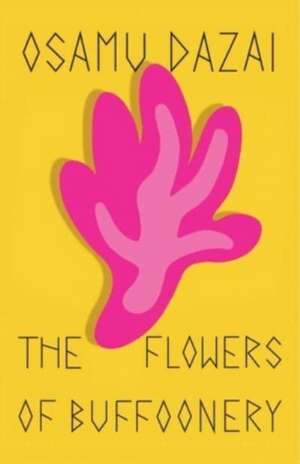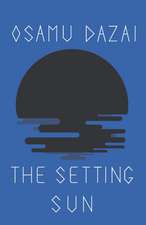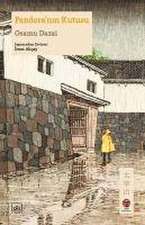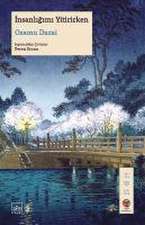The Flowers of Buffoonery
Autor Osamu Dazai, Sam Betten Limba Engleză Paperback – 6 mar 2023
While No Longer Human delves into the darkest corners of human consciousness, The Flowers of Buffoonery pokes fun at these same emotions: the follies and hardships of youth, of love and of self-hatred and depression. A glimpse into the lives of a group of outsiders in pre-war Japan, The Flowers of Buffoonery is a darkly humorous and fresh addition to Osamu Dazai's masterful and intoxicating oeuvre.
Preț: 75.87 lei
Nou
14.52€ • 15.20$ • 12.04£
Carte disponibilă
Livrare economică 19 martie-02 aprilie
Livrare express 05-11 martie pentru 21.11 lei
Specificații
ISBN-10: 0811234541
Pagini: 96
Dimensiuni: 131 x 203 x 7 mm
Greutate: 0.11 kg
Editura: W. W. Norton & Company
Descriere
The Flowers of Buffoonery opens in a seaside sanatorium where Yozo Oba-the narrator of No Longer Human at a younger age-is being kept after a failed suicide attempt. While he is convalescing, his friends and family visit him, and other patients and nurses drift in and out of his room. Against this dispiriting backdrop, everyone tries to maintain a light-hearted, even clownish atmosphere: playing cards, smoking cigarettes, vying for attention, cracking jokes and trying to make each other laugh.
While No Longer Human delves into the darkest corners of human consciousness, The Flowers of Buffoonery pokes fun at these same emotions: the follies and hardships of youth, of love and of self-hatred and depression. A glimpse into the lives of a group of outsiders in pre-war Japan, The Flowers of Buffoonery is a darkly humorous and fresh addition to Osamu Dazai's masterful and intoxicating oeuvre.
Notă biografică
OSAMU DAZAI was born in 1909 into a powerful landowning family of Northern Japan. A brilliant student, he entered the French Department of Tokyo University in 1930, but later boasted that in the five years before he left without a degree he had never attended a lecture. Dazai was famous for confronting head-on the social and moral crises of postwar Japan when he committed suicide by throwing himself into Tokyo's Tamagawa Reservoir. His body was found on what would have been his 39th birthday.








